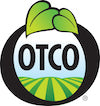FDA Expected to Issue Ban on Trans Fats

The FDA is expected to announce its plan to officially guide the food industry away from adding trans fat to the nation’s food supply. In essence, the announcement will be a ban on the ingredient linked to inflammation and diseases including heart disease, obesity and high cholesterol.
While manufacturers have voluntarily removed much of the trans fat ingredients, which are found primarily in processed foods, the unhealthy culprit still remains in a number of food items. The FDA is expected to revoke GRAS (Generally Recognized As Safe) status for trans fats.
"The time is long overdue to get trans fats out of the food supply," Michael Jacobson of the Center for Science in the Public Interest told NPR. Jacobson aided in the mandatory labeling of trans fats on food packages that has been in place since 2006.
Trans fats can still be found in baked goods, processed snack foods and microwave popcorn. Another concern is food that’s labeled as being trans-fat free but can actually contain less than .5 grams of trans fat per serving. While not a large amount, it can add up.
Trans fats "raise bad cholesterol and lower good cholesterol," Dariush Mozaffarian, a cardiologist, epidemiologist and dean of the nutrition policy and science school at Tufts University told NPR. And Mozaffarian says trans fats also damage blood vessels, "There's really not any other fat that has this constellation of harmful effects," he says.
The Grocery Manufacturers Association says it will file a petition with the FDA over the ruling, stating that food producers have reduced trans fats by more than 85 percent in recent years and the revocation of GRAS status would open up manufacturers to lawsuits, particularly over that .5 percent of trans fats in trans-fat free foods.
And if you’re looking to ensure your diet is free from trans fats, Mozaffarian tells NPR "Any natural replacement is superior to partially hydrogenated vegetable oil — whether it's butter, palm oil or blends of oils.”
Image: bochalla
Leave a comment
Comments will be approved before showing up.


